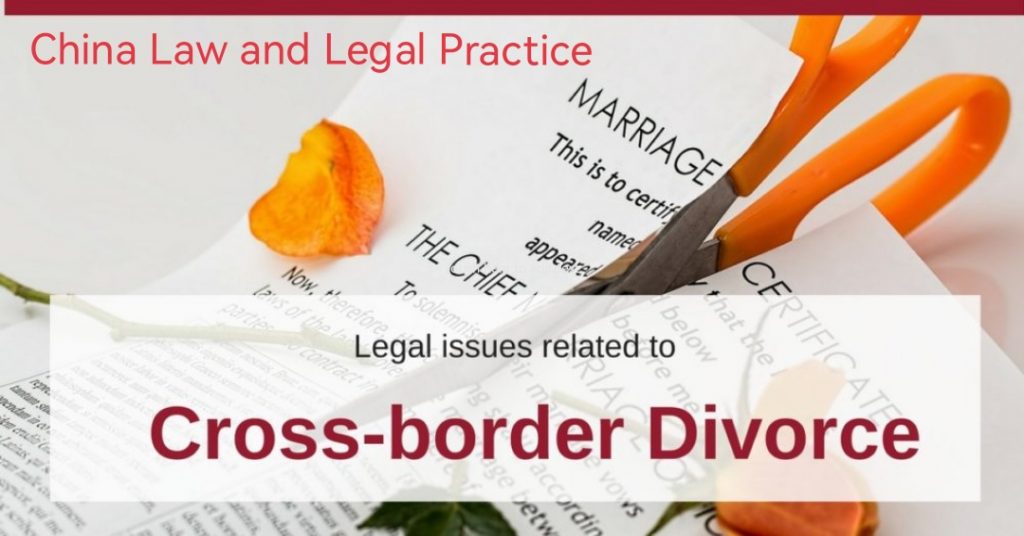Recently I came across a very interesting article posted on Ifeng.com, a very popular Chinese web portal, talking about pre-nuptial agreements between various type of stars in the world such as UK prince Williams and Kate, Beyonce and Jay-Z, Britney Spears and Kevin.
Some of the fun points in their pre-nuptials are:
(1) In the agreement between Mike Douglas and his wife Diane Andros, Douglas will have to pay 3.4 million pounds once found guilty of being unfaithful;
(2) Hong Kong actress, Cecilia Cheung, insists in her agreement with her husband Tse Ting Fung that she will be entitled to take their children with her if they divorce for whatever reasons;
(3) More weird is the piece of provision the Japan female star Erika Sawajiri has with her husband saying that they will have sex four times a month, and for each one more time, her husband will pay her 500,000 Japanese Yen. Jesus! What a marriage!
I am not sharing the funny things with you only but getting you aware and informed about what you can write into the pre-nuptial agreement under Chinese laws. People who get married with a Chinese minister or miss, or simply get married in China because of their residence in China, may be interested to know this if they are contemplating a pre-nuptial agreement. For avoidance of doubt, the said people don’t have to follow Chinese laws in drafting their pre-nups, and the parties can agree on the applicable laws governing their marital agreements.
1. On Marital Properties
Strictly speaking, a couple can only write about the division of marital properties in their pre-nuptial or premarital agreement under China Marriage Law. Article 19 of the Law reads that a couple can stipulate in a written agreement that the properties (real or personal) earned or acquired during or prior to their marriage be jointly or separately owned in whole or in part. There are no other provisions authorizing a couple to agree on anything else in the life of their marriage except in the case of a divorce settlement agreement.
In the absence of a pre-nuptial agreement, all properties acquired by one spouse in the course of their marriage will automatically turned into a piece of community property of the couple except as otherwise provided by laws. For more in regard of legal rules governing marital properties, please refer to another post on this blog: basics about China Marriage Law.
So for people who do not want to easily lose half of his earnings and income in China, it will be definitely necessary to prepare and sign a well-drafted pre-nuptial agreement.
Chinese courts have been refusing to split marital properties between a couple unless the couple divorce till the issue of the third judicial interpretation of China Marriage Law by Chinese Supreme Court. Under the new interpretation issued in August of 2011, before divorce, one spouse may sue to divide their community property in two situations:
(1) the other spouse is engaged in conducts that cause material damage to community properties and interests, such as concealing, transferring, damaging or squandering the same, or creating false joint debts etc.; and
(2) one spouse’s relatives to whom the said spouse owes the statutory obligation of paying their medical expenses are seriously ill, the other spouse does not agree to pay such expenses.
2. On Child Maintenance, Custodianship/Guardianship
Children are the most innocent party to any divorce dispute. Always, the child issues including the guardianship, maintenance and advancement of the child are one of the core concern in the dispute. So it is not strange to see many pre-nuptial agreements include clauses dealing with the maintenance, custody and custodianship of the Child.
However, the couple contemplating such clauses shall be careful so as not to render such clauses void. Under China Marriage Law, Chinese family law, it is both statutory right and statutory obligation of the parent to maintain, raise and educate the child. In other words, one spouse cannot deprive the other of the right to custodianship for the child.
On the other hand, China Marriage Law does allow the parties to discuss and agree on how the child should be maintained and supported between them. So it is my understanding that the couple may stipulate that in case of divorce, given conditions, the child will live with one parent with the other giving necessary financial support. The wording shall avoid meaning that the other party will lose his right to take custody of the child.
Very often, upon divorcing, one spouse wants to leave the child to the other by offering the other some money, hoping that he or she will no longer be obligated to maintain and raise the child. This is illegal in China. The China Marriage Law provides expressly that after divorcing, the parents have the right and OBLIGATION to maintain and educate the child. This statutory obligation is also applicable in the case of a child that is born out of wedlock. The child will always be able to ask for maintenance fee from the other parent that is not living with the child.
Unfortunately, under Chinese family laws, the obligations for custodianship and maintenance are not well defined as they should be, and are very much mixed and misused in various laws and regulations. This poses another layer of problem to the issue and drafting in this regard shall be well considered and thought over.
3. Penalty for Infidelity
Nowadays, fidelity is something precious in our world. It is very common for a couple to think about using financial penalty in their pre-nuptial agreement to prevent the other party from committing unfaithful conducts and adultery.
However, such agreement is not upheld in Chinese courts. In Shanghai where I practice law, the Shanghai High People’s Court has made it clear in its notice back in 2004 that such agreements are related to moral obligation instead of legal obligation, and therefore should not be treated as a cause of action.
On the other hand, there have been reports in which courts uphold claims for liquidated damages stipulated in pre-nuptial agreement. In 2011, an intermediary people’s court in Beijing granted RMB 800,000 to the wife after finding that her husband breached his obligation of fidelity under the premarital agreement.
In such a case, it is always advisable to insert such a clause in your pre-nuptial agreement. Personally, I tend to believe that such agreement on fidelity obligation shall be supported because the claims for such spiritual and material interests are reasonable and commonplace in society. Chinese Marriage Law provides that a couple shall be faithful and loyal to each other. There are no reasons why such traditional morality is not protected by courts.
It will be reasonable to expect a change of attitude on the part of Chinese Supreme Court with the advancement of Chinese society in which the concept of contract and individualism is growing.








Hi Jason,
Thank you very much for this informative article. I have a question relating to child custody. My fiancee withh be bringing his 3 yr old daughter into our marriage. Because he has to work abroad, I will be doing most of the upbringing. After having made invested my love, energy,and resources, I would be terrified should her father choose to or threaten to take her away from me. But as a mere stepmom, (formal adoption would be extremely difficult), I don’t have any rights to the child. Is there any way I can protect myself by writing a custody clause into a pre-nup? That is, use our prenup to give some of the custody rights that an adoption would? I hope I have made my situation clear.
I very much appreciate your help. Thank you for your time.
Best,
Christine
hi Christine, I have to say what a great person you are to ponder over such a question. As I am a Chinese family lawyer, I cannot give advice on issues related to foreign laws. Not sure whether you are residing in China or not.
But unfortunately, legally your right of custody or guardianship over the child is not well protected in China if you cannot formally adopt her. What I can think of is to insert a clause of penalty against your husband if he ever intends to take away the child from you.
Indeed, it is the first inquiry of this kind in my 15 year legal practice.
Dear sir,
Is it also possible to sign a prenuptial agreement in China during the marriage? or is it only possible to sign a prenuptial agreement before the marriage?
both are fine in China, nuptial agreement and pre-nuptial agreement.
Dear Sir,
Does China recognize the validity of foreign prenuptial argreements? I cannot seem to find the answer on the internet.
Kind regards,
Sophie
yes, generally speaking, yes, unless the agreement is signed under undue influence or duress or fraud.
Thank you for your quick reply. Do you know a source where I can find this information?
There is no specific provision in any law, it is rather an interpretation of China conflict law.
Interesting article.
I was wondering if the unfaithfull clause is existing in China? Does your wife can claim money if you are unfathfull ? If yes, is it something you can put in your prenup: make that the unfaithfull doesn’t apply ?
Dear Sir,
Is it also possible to change your prenuptial agreement and or your choice of the applicable law during the marriage according to Chinese law? And is it necessary to draft your (pre) nuptial agreement at a Chinese notary public or can a lawyer draft it as well? (I don’t find anything in article 18/19 of the Chinese marriage law about the formal requirements (if any) of a (pre) nuptial agreement)
Kind regards
Brigitte Lhoest
Dear Brigitte Lhoest, a pre-nuptial agreement is subject to any amendment of the parties upon mutual consent. That said, you can change the applicable laws if the couple can agree on this. Generally to ensure that clauses in your pre-nuptial agreement are applicable with the laws you have chose, it is always advisable for the parties to seek their respective legal assistance over the agreement. The lawyer you choose should be a lawyer who practices the applicable laws. In China, the parties can entrust a lawyer to draft the pre-nuptial agreement and then have the lawyer serve as witness for signing the agreement. But in China, to secure the validity of the pre-nuptial agreement, you’d better have the agreement notarized by a notary public office.
Thank you very much for your clear answer.
Dear Sir,
Is it also possible to change your prenuptial agreement and or your choice of the applicable law during the marriage according to Chinese law? And is it necessary to draft your (pre) nuptial agreement at a Chinese notary public or can a lawyer draft it as well? (I don’t find anything in atricle 18/19 of trhe Chinese marriage law about the formal requirements (if any) of a (pre) nuptial agreement)
Kind regards
Brigitte Lhoest